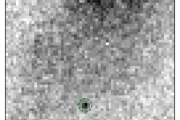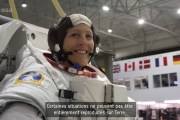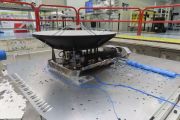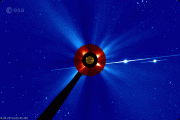
Copernical Team
Successful entry into service of the multi-mission EUTELSAT 10B satellite
 Eutelsat Communications (Euronext Paris: ETL) reports that its newest venture, the multi-mission high-capacity EUTELSAT 10B satellite, has entered service successfully at the 10 East orbital position. This achievement demonstrates Eutelsat's continuous effort to meet the growing demand for mobile connectivity.
The EUTELSAT 10B's dual High-Throughput Satellite (HTS) Ku-band payloads promise
Eutelsat Communications (Euronext Paris: ETL) reports that its newest venture, the multi-mission high-capacity EUTELSAT 10B satellite, has entered service successfully at the 10 East orbital position. This achievement demonstrates Eutelsat's continuous effort to meet the growing demand for mobile connectivity.
The EUTELSAT 10B's dual High-Throughput Satellite (HTS) Ku-band payloads promise PlanetiQ Commences Daily Deliveries of High-Quality GNSS-RO Data to NOAA
 Weather forecasting and climate research stand on the threshold of a new era as PlanetiQ, a forerunner in global atmospheric observation systems, kicks off daily deliveries of its top-grade Signal to Noise Ratio (SNR) GNSS-Radio Occultation (GNSS-RO) data to the National Oceanic and Atmospheric Administration (NOAA). In a forward-looking move, NOAA has committed $59.6 million over the next five
Weather forecasting and climate research stand on the threshold of a new era as PlanetiQ, a forerunner in global atmospheric observation systems, kicks off daily deliveries of its top-grade Signal to Noise Ratio (SNR) GNSS-Radio Occultation (GNSS-RO) data to the National Oceanic and Atmospheric Administration (NOAA). In a forward-looking move, NOAA has committed $59.6 million over the next five China's GalaxySpace Debuts Revolutionary Flexible Solar Wing Satellite
 China's commercial space company, GalaxySpace, has successfully embarked on a new chapter in the nation's space endeavours, launching the Lingxi-03 satellite from a Long March-2D rocket this past Sunday.
In a noteworthy first, the Lingxi-03 satellite is furnished with a flexible solar wing, a unique design for the nation. The solar panel, a single-layered structure, is impressively thin at
China's commercial space company, GalaxySpace, has successfully embarked on a new chapter in the nation's space endeavours, launching the Lingxi-03 satellite from a Long March-2D rocket this past Sunday.
In a noteworthy first, the Lingxi-03 satellite is furnished with a flexible solar wing, a unique design for the nation. The solar panel, a single-layered structure, is impressively thin at NASA lab hopes to find life's building blocks in asteroid sample
 Eager scientists and a gleaming lab awaits.
A sample from the asteroid Bennu, which could be key to understanding the formation of the solar system and our own planet, is set to be analyzed at NASA's Johnson Space Center in Houston after it reaches Earth in late September.
The precious cargo is currently aboard OSIRIS-REx, a US space probe launched in 2016 to Bennu, which orbits the Sun
Eager scientists and a gleaming lab awaits.
A sample from the asteroid Bennu, which could be key to understanding the formation of the solar system and our own planet, is set to be analyzed at NASA's Johnson Space Center in Houston after it reaches Earth in late September.
The precious cargo is currently aboard OSIRIS-REx, a US space probe launched in 2016 to Bennu, which orbits the Sun Unveiling Mars' Past: Olympus Mons as a Gigantic Volcanic Isle
 Is it possible that Olympus Mons, the largest volcano in our solar system, was once a behemoth volcanic island on Mars, equivalent in size to the nation of France? According to the latest research led by a CNRS scientist, this could indeed have been the reality of the Martian landscape at some point in its geologic past. The work, which was published in the Earth and Planetary Science Letters jo
Is it possible that Olympus Mons, the largest volcano in our solar system, was once a behemoth volcanic island on Mars, equivalent in size to the nation of France? According to the latest research led by a CNRS scientist, this could indeed have been the reality of the Martian landscape at some point in its geologic past. The work, which was published in the Earth and Planetary Science Letters jo Gilmour Space Technologies to accelerate design and manufacturing with Siemens Xcelerator
 Siemens Digital Industries Software has announced that Gilmour Space Technologies,and Australian launch vehicle satellite platform developer, has adopted the Siemens Xcelerator portfolio of industry software to help accelerate its design and manufacturing processes across its facilities in Queensland, Australia.
Siemens Digital Industries Software's consultancy and implementation partner P
Siemens Digital Industries Software has announced that Gilmour Space Technologies,and Australian launch vehicle satellite platform developer, has adopted the Siemens Xcelerator portfolio of industry software to help accelerate its design and manufacturing processes across its facilities in Queensland, Australia.
Siemens Digital Industries Software's consultancy and implementation partner P Geophysics student employs 800-year-old method for Lunar GPS system
 A student of geophysics at the Faculty of Science of Eotvos Lorand University (ELTE), Kamilla Cziraki, in collaboration with Professor Gabor Timar, head of the Department of Geophysics and Space Sciences, has given an innovative spin to the study of navigation systems that might be utilized on the Moon's surface for future explorations.
The team applied a method based on the mathematical p
A student of geophysics at the Faculty of Science of Eotvos Lorand University (ELTE), Kamilla Cziraki, in collaboration with Professor Gabor Timar, head of the Department of Geophysics and Space Sciences, has given an innovative spin to the study of navigation systems that might be utilized on the Moon's surface for future explorations.
The team applied a method based on the mathematical p An 800-year-old mathematical trick could help with lunar navigation
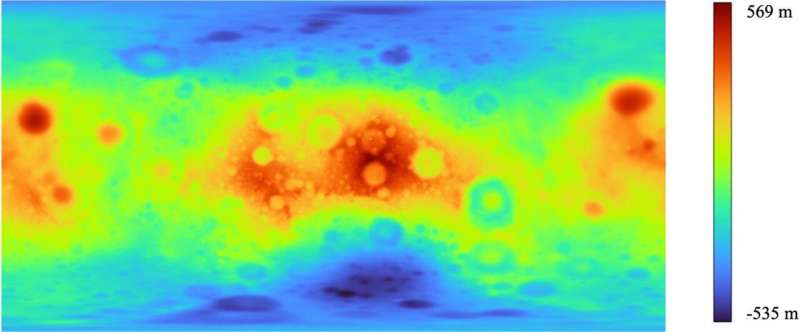
Kamilla Cziráki, a geophysics student at the Faculty of Science of Eötvös Loránd University (ELTE), has taken a new approach to researching the navigation systems that can be used on the surface of the moon to plan future journeys.
Working with Professor Gábor Timár, head of the Department of Geophysics and Space Sciences, Cziráki calculated the parameters used in the Earth's GPS system for the moon using the method of mathematician Fibonacci, who lived 800 years ago. Their findings have been published in the journal Acta Geodaetica et Geophysica.
Now, as humanity prepares to return to the moon after half a century, the focus is on possible methods of lunar navigation.
NASA power outage temporarily halts contact with space station
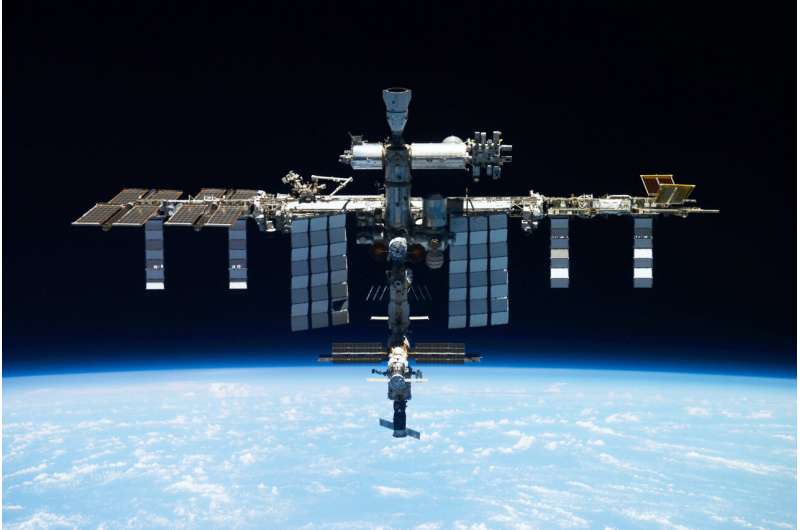
A NASA power outage disrupted communication between Mission Control and the International Space Station on Tuesday.
Mission Control couldn't send commands to the station and talk with the seven astronauts in orbit. The power outage hit as upgrade work was underway in the building at Houston's Johnson Space Center.
Space station program manager Joel Montalbano said neither the astronauts nor station were ever in any danger and that backup control systems took over within 90 minutes.
Orbiting astronaut oversees robot team on Earth
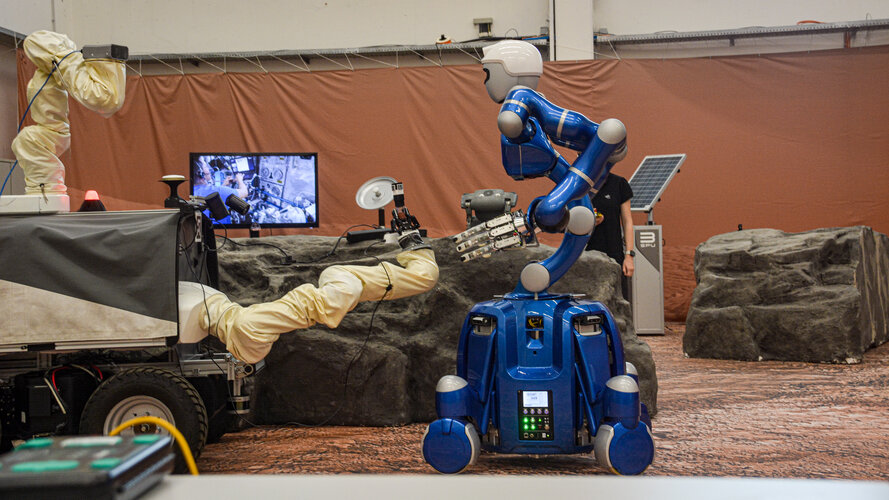
Astronaut Frank Rubio aboard the International Space Station collaborated with a small team of robots on Earth to accomplish a complex task – a first test of a new approach to combine human and robotic capabilities for our return to the Moon and beyond.

